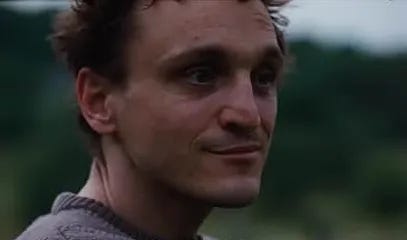Bird
An expressive and evocative look at a 12-year-old Brit girl navigating her environment of poverty and abuse, and then she meets a mysterious stranger whose presence alters her tide stream.
I think any ardent fan of film often finds themselves playing the game of, “What this reminds me of.” You’ll be watching a movie and find a similarity to another one, often from long ago and with perhaps a tenuous connection.
With “Bird,” a drama about a 12-year-old Brit girl, I was reminded of “Fresh,” the 1994 debut film of director Boaz Yakin (“Remember the Giants”). Both are about Black preadolescents navigating an environment of poverty and abuse, and then things happen that alters the tide stream of their life. Previously an unassertive figure, they begin to manipulate people and forces around them, and not always in a healthy way.
In the case of Bailey, portrayed brilliantly by Nykiya Adams, the impetus is the title figure, a strange man played by Franz Rogowski who does not even turn up until about a quarter of the way through the film’s running time. Bird, wearing sandals, a grayish skirt and yellow coat, seemingly walks into Bailey’s life from out of nowhere, lingering there for a time.
At first, she professes not to care about him, but over time Bird’s passive presence becomes a comfort to her. She helps him on his very vague purpose of finding his parents, who once lived in the same low-income English highrise as Bailey’s mother. All he has is some scribblings on an old box, and yet against odds they gradually make progress in this quest.
Bailey’s home situation is very tough. She lives in a filthy, ramshackle apartment festooned with graffiti on every wall with her father, Bug, played by Oscar nominee Barry Keoghan. Bug is a tattooed street thug, not very smart and with no vocation we can detect, and had his first child, Bailey’s half-brother Hunter (Jason Buda), at age 14. Hunter does crimes with his gang of lads, and refuses to let Bailey come along because he says she’s just a child. (He’s perhaps 15 himself.)
Bug careens about town on an electric scooter, and his latest money-making scheme is that he’s acquired a frog (actually a toad) that he says will secret hallucinogenic mucus if they can just find the right music to play for him. As the story opens, he reveals his plans to marry Kailey (Frankie Box) next Saturday and have her and her toddler daughter move in with them.
Bailey is irked about this, in no small part to Bug’s insistence she wear a long purple bridesmaid dress for the occasion. Bailey is a tomgirl or possibly genderfluid, and resists by cutting off her long afro twists into a boyish crop.
Keoghan is charismatic as Bug, who acts in ways toward Bailey that are borderline physically and emotionally abusive, but in his inner core seems like he truly loves his kids.
Things are not much better with Bailey’s mother, Peyton (Jasmine Jobson), who lives nearby with her other children, Bailey’s three small half-siblings. Peyton is the sort of woman who seems to move from one abusive boyfriend to the next, and the latest is Skate (James Nelson-Joyce), an especially nasty figure who threatens to kill the family dog, or Peyton herself, if his whims are not met.
Bailey meets Bird in a bit of green space in between the tenement buildings, and he seems dreamy and not entirely of this world. I’ve commented before in my review of “Passages” that Rogowski makes for a compelling physical presence. Thin as a sparrow with deep, probing eyes beneath a chaotic mop of hair, his Bird speaks in a gentle, slightly indistinct accent. He seems to have no possessions other than what’s in his backpack.
At first Bailey seems to think this new friend can help with the Skate situation, but he seems almost puzzled by the man’s braying and threats. “I might not be who you think I am. Some kind of hero. Did I disappoint you?” he asks.
Various fowl flit about in the background of the movie, often diverting Bailey’s attention. She likes to shoot footage with her smartphone, almost little abstract films, with birds or Bird himself often the subject.
Writer/director Andrea Arnold (“American Honey”) has made a very observant film that peers at Bailey’s life situation with an eagle eye but without judgement. All around her are people who don’t seem to have jobs, and none of the kids go to school. There’s little hope for a better life other than a momentary score or bit of luck. They’re all stuck in the same cage no one seems to be trying to escape.
As the film goes on, it becomes less about straight storytelling and wanders into the metaphysical. We wonder more about Bird’s origins and motivations, and how much of what Bailey is experiencing really happens or is just what she wishes would. Her clothing and demeanor grow more traditionally feminine, without explanation.
It’s a lovely, sad picture. Bailey is smart, curious and tougher than she seems — the sort of kid people tend to overlook, until they do something to dazzle.




